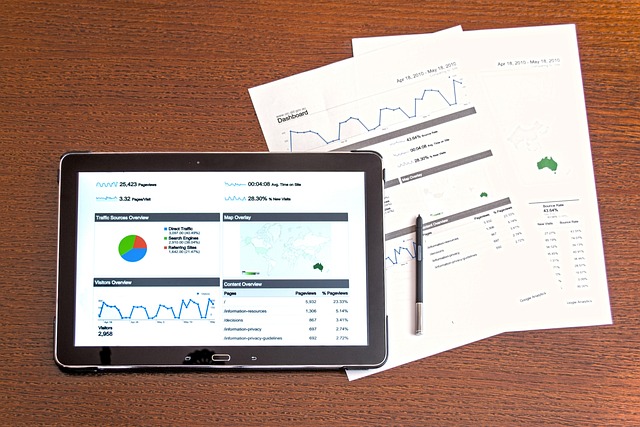The contemporary business landscape demands organizations to prioritize data-driven decision-making across all sectors. Human Resources (HR) departments are no exception to this imperative. By effectively leveraging data and analytics, HR operations can be optimized, employee experiences can be enhanced, and organizational success can be propelled.
This article explores the significance of adopting a data-driven approach in HR decision-making and highlights the invaluable benefits of Moodbit—a robust HR co-pilot that empowers organizations with actionable insights derived from data.
Why Data-Driven Decision-Making Matters in HR

Understanding Employee Behavior and Engagement
Data-driven decision-making in HR enables organizations to gain valuable insights into employee behavior and engagement. By analyzing various data points, such as employee feedback, performance metrics, and sentiment analysis, HR professionals can identify patterns and trends that impact employee satisfaction and productivity.
This understanding allows HR teams to develop strategies to enhance engagement, boost morale, and create a positive work environment.
Improving Recruitment and Talent Acquisition
Recruiting and acquiring top talent is a critical function of HR. Data-driven decision-making can revolutionize the recruitment process by providing HR professionals with actionable insights.
By analyzing data from various sources, such as applicant tracking systems, social media platforms, and employee referrals, HR teams can identify the most effective recruitment channels, assess candidate fit, and streamline the hiring process. This data-driven approach helps organizations attract and retain the best talent.
Enhancing Performance Management
Effective performance management is essential for driving employee productivity and achieving organizational goals. Data-driven decision-making allows HR professionals to objectively evaluate performance, identify skill gaps, and develop targeted training and development programs.
By leveraging data, HR can provide personalized feedback, establish clear performance benchmarks, and align individual goals with organizational objectives. This approach fosters a culture of continuous improvement and drives overall performance.
Optimizing Employee Benefits and Well-being
Data-driven decision-making can significantly impact employee benefits and well-being programs. By analyzing data on employee demographics, preferences, and utilization patterns, HR teams can tailor benefits packages to meet the specific needs of their workforce.
Additionally, data insights can help identify areas where wellness initiatives can be improved, leading to increased employee satisfaction and reduced healthcare costs. Overall, data-driven decision-making enables HR to optimize employee benefits and promote well-being.
The Role of Moodbit in Data-Driven HR Decision-Making
Moodbit is a powerful tool that empowers HR professionals with advanced analytics and insights. Its user-friendly interface and comprehensive features make it an invaluable co-pilot for HR departments. Here are some of the key benefits of using Moodbit for data-driven decision-making:
1. Sentiment Analysis
Moodbit utilizes advanced sentiment analysis algorithms to analyze employee feedback and sentiment. By assessing the tone and context of employee communications, Moodbit provides HR professionals with a comprehensive understanding of employee sentiment, helping them identify potential issues and address them proactively.
2. Real-time Data Visualization
Moodbit offers intuitive and visually appealing dashboards that present HR data in real time. This allows HR professionals to monitor key metrics, such as employee engagement levels, turnover rates, and performance indicators, at a glance. The ability to visualize data in real time enables HR teams to make informed decisions promptly.
3. Predictive Analytics
Moodbit leverages predictive analytics to forecast future trends and outcomes. By analyzing historical data and identifying patterns, Moodbit can provide HR professionals with valuable insights into potential challenges or opportunities.
This proactive approach enables HR to take preemptive action and implement strategies to optimize employee experiences and organizational performance.
4. Customizable Reports and Metrics
Moodbit allows HR professionals to create customizable reports and metrics tailored to their specific needs. Whether it’s generating employee satisfaction reports, diversity and inclusion metrics, or talent acquisition analytics, Moodbit provides flexibility and adaptability. This customization empowers HR teams to focus on the metrics that matter most to their organization.
5. Continuous Improvement
Moodbit supports a culture of continuous improvement by providing actionable recommendations based on data analysis. By identifying areas for growth and enhancement, Moodbit helps HR professionals refine their strategies and initiatives continuously. This iterative approach fosters innovation and drives long-term success.
Conclusion
In an era where data is abundant, HR professionals must leverage the power of data-driven decision-making to enhance their operations and drive organizational success. The relevancy of making data-driven decisions in HR cannot be overstated.
By understanding employee behavior, improving recruitment processes, enhancing performance management, and optimizing employee benefits, HR teams can create a positive work environment and empower their workforce.
Moodbit plays a vital role in this journey by providing advanced analytics, real-time data visualization, predictive insights, customizable reports, and continuous improvement recommendations.
Embracing data-driven decision-making with Moodbit as a co-pilot enables HR to unlock the full potential of their organization.